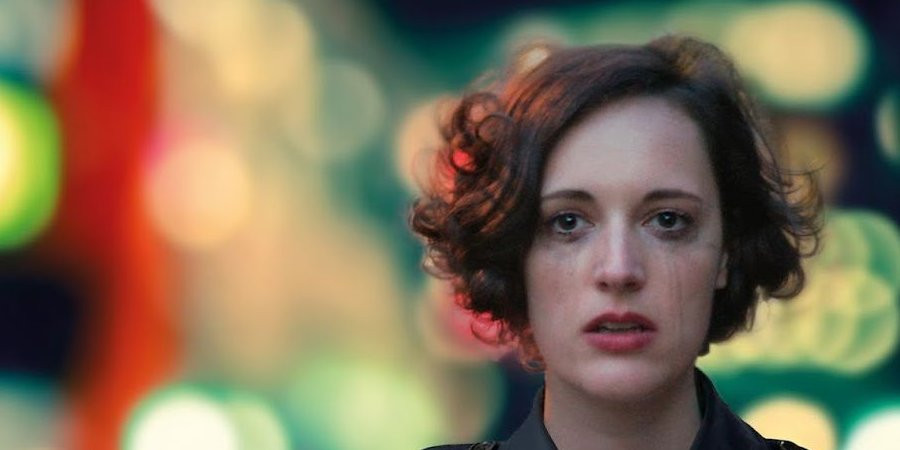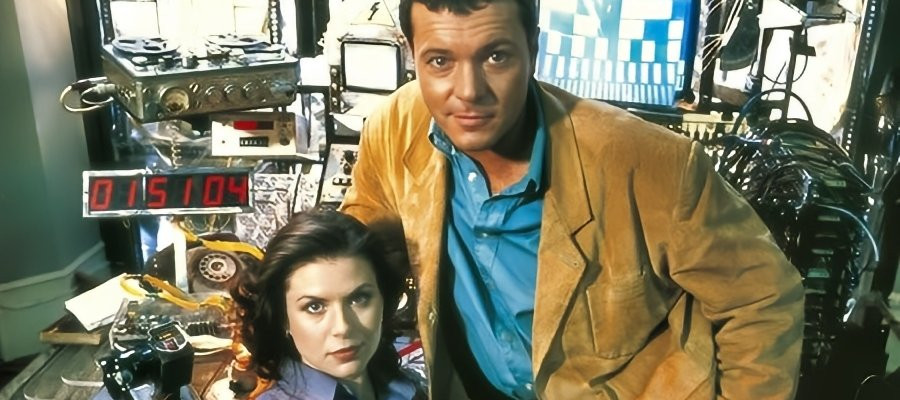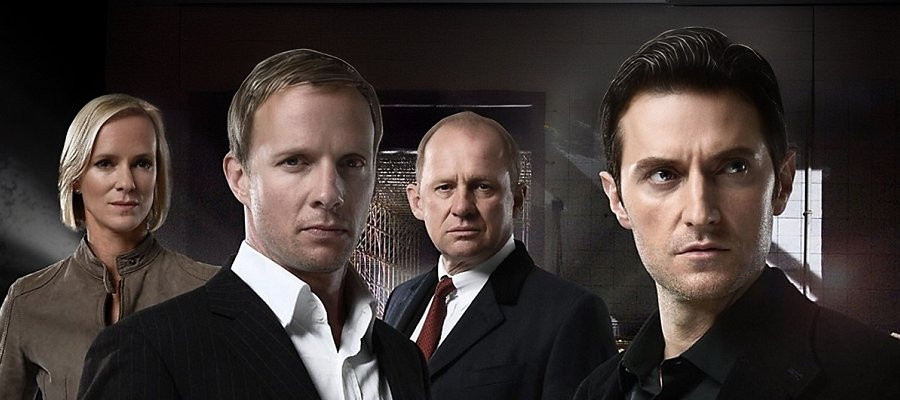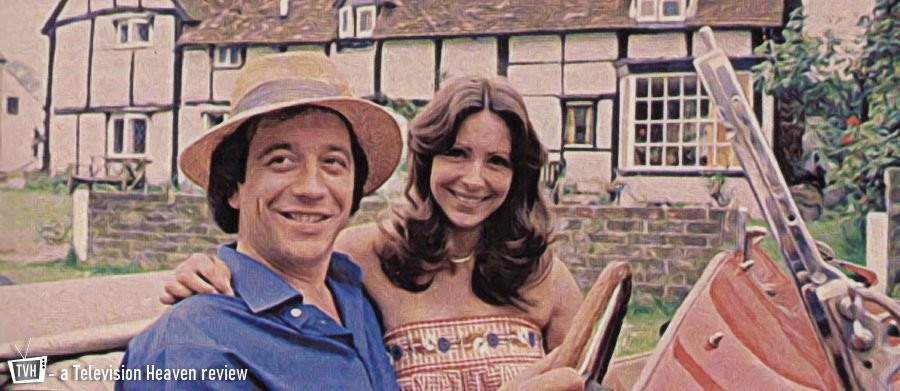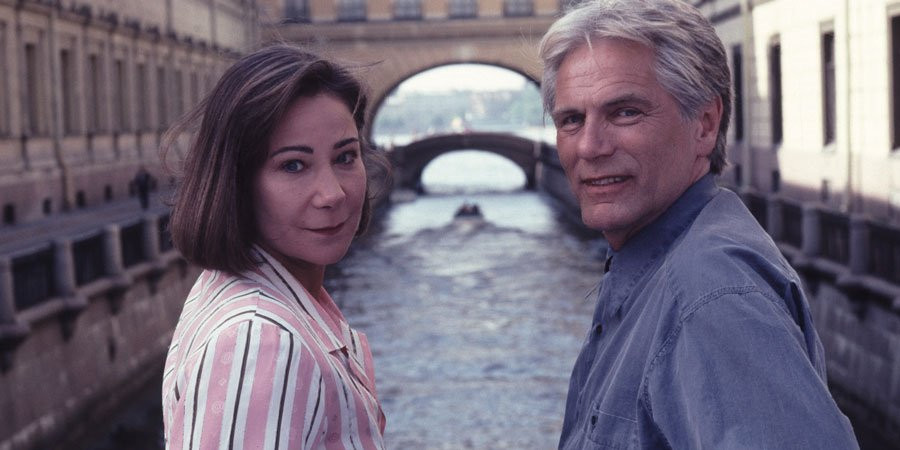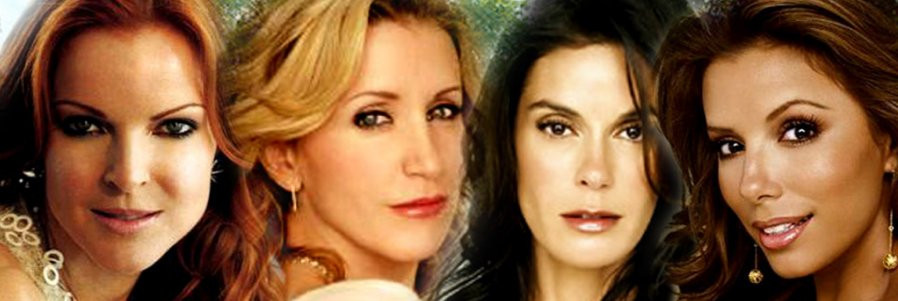
Cold Feet
1997 - United KingdomWhen Cold Feet first aired in 1997 as a one-off comedy-drama special on ITV, few could have predicted that it would blossom into one of British television’s most beloved and enduring series. Unfairly dismissed in its early days as a sort of "British Friends", the comparison never quite held water. While both shows revolved around six main characters and their interwoven relationships, Cold Feet, created by Mike Bullen, possessed a depth, poignancy, and emotional realism that placed it far closer to thirtysomething than to the glossy escapism of its American counterpart.
Set in Manchester, the show charted the lives of three middle-class couples, each representing different tiers of the social ladder. At the heart of the series were Adam (James Nesbitt), a charmingly immature systems analyst, and Rachel (Helen Baxendale), a more grounded advertising executive. Their on-again, off-again romance was as touching as it was tumultuous, defined early on by one of British TV's most iconic moments; Adam’s nude serenade in Rachel’s front garden, complete with a strategically placed red rose.
Then there were Pete and Jenny Gifford (John Thomson and Fay Ripley), the most relatable and down-to-earth couple, struggling with the pressures of parenthood and the slow drift of domestic life. At the more aspirational end of the spectrum sat David and Karen Marsden (Robert Bathurst and Hermione Norris), whose outwardly affluent lifestyle masked emotional distance, power struggles, and later, serious marital crises. With these six at the centre, Cold Feet offered a panoramic view of modern relationships — heartwarming, painful, funny and deeply human.
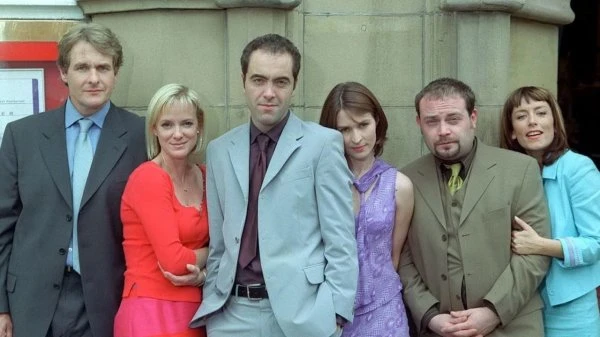
After an 18-month hiatus following the pilot, the show gained a new lease on life when it was honoured with the Golden Rose at the Montreux Television Festival. The full series that followed was a ratings hit, regularly drawing audiences of up to 10 million viewers and becoming an awards juggernaut, winning the British Comedy Award for Best Comedy in both 1999 and 2000.
Unlike many of its contemporaries, Cold Feet never shied away from weightier issues. Alcoholism, infertility, depression, infidelity, career anxiety — these were all explored with rare honesty. The series' emotional peak came in the penultimate episode of its original run, with the sudden and tragic death of Rachel in a car crash. Her passing was not just a shock twist; it marked a genuine exploration of grief and loss, culminating in Adam's heart-rending decision to scatter her ashes in Portmeirion, a place of happy memories and love. It was a poignant farewell to both character and show — at least for a while.
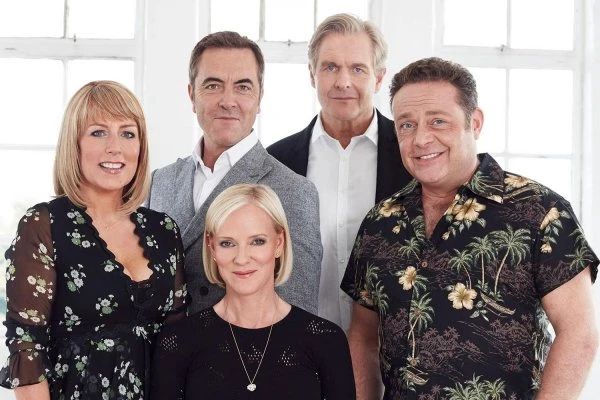
But like so many great dramas, Cold Feet proved too enduring to remain in television’s vaults forever. In 2016, after a 13-year hiatus, the show returned for a revival series. Unlike many reboots, this was no nostalgia cash-in. The characters were older, wearier, and facing a new raft of issues; empty nests, career reinventions, late-life crises, and even grandparenting. Bullen’s writing remained as sharp and warm as ever, and the chemistry among the cast had matured beautifully. Crucially, the show didn’t try to recreate the past but acknowledged the passage of time, making it once again feel relevant and relatable.
The revived Cold Feet ran for four more series, finally concluding in 2020. While it perhaps didn’t hit quite the same dizzying emotional heights as its original incarnation, it nonetheless offered a graceful and satisfying conclusion to the stories of characters viewers had grown up with.
Ultimately, Cold Feet stands as a landmark in British television—a deft blend of comedy and drama, romance and realism. Its success lies not in flashy plot twists or fashionable premises, but in its truthful portrayal of everyday life. It reminded us that love is messy, parenting is hard, growing older is strange, and friendships—no matter how imperfect—are often the strongest glue holding everything together. In short, Cold Feet had a rare heart. And television, then and now, is better for it.
Seen this show? How do you rate it?
Seen this show? How do you rate it?
Published on December 4th, 2018. Written by Malcolm Alexander for Television Heaven.



